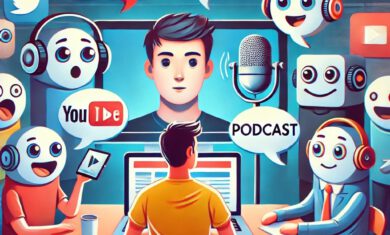The last decade has seen a lot of concern over the effect of social media on teens. Most recently is the U.S. government attempting to pass KOSA (the “Kids Online Safety Act”), which is unlikely to actually help very much.
While there are certainly some concerns to be dealt with, social media by teens is generally a positive thing.
Here are some studies that unpack teen use of social media.
Pew Research says:
“Majorities of teens credit social media with strengthening their friendships and providing support while also noting the emotionally charged side of these platforms”
From the Surgeon General:
“Social media can provide benefits for some youth by providing positive community and connection with others who share identities, abilities, and interests. It can provide access to important information and create a space for self-expression. The ability to form and maintain friendships online and develop social connections are among the positive effects of social media use for youth. These relationships can afford opportunities to have positive interactions with more diverse peer groups than are available to them offline and can provide important social support to youth. The buffering effects against stress that online social support from peers may provide can be especially important for youth who are often marginalized, including racial, ethnic, and sexual and gender minorities.”
The American Psychological Association:
“Using social media is not inherently beneficial or harmful to young people. Adolescents’ lives online both reflect and impact their offline lives. In most cases, the effects of social media are dependent on adolescents’ own personal and psychological characteristics and social circumstances—intersecting with the specific content, features, or functions that are afforded within many social media platforms. In other words, the effects of social media likely depend on what teens can do and see online, teens’ preexisting strengths or vulnerabilities, and the contexts in which they grow up.”
A study from the University of Oxford, which covered nearly a million people from 72 countries across 12 years:
“The largest independent scientific study ever conducted investigating the spread of Facebook across the globe found no evidence that the social media platform’s worldwide penetration is linked to widespread psychological harm.”
It’s important to note that most of these studies showed things like “no evidence of harm”, and not that social media was necessarily good for everyone. Social media has some substantial problems for some people, and we shouldn’t just sit back and see how things shake out.
However, the idea of “we need to do something” is misplaced and is a foolish position to take. Bills like KOSA will only make things worse, even though they (seemingly) come from a place of good intent. It’s worth studying to see what the real issues are, and find effective ways to improve outcomes for everyone.
Fearmongering
The more we yell that “social media is bad for teens”, or things like “watch out for razor blades in Halloween candy”, or the completely made-up stats about sex trafficking (like this or this), the more the real work gets pushed aside. I’m not saying to ignore these issues (well, except for maybe the completely made-up Halloween candy stuff), but trying to scare people with made-up stats and stories only serves to make things worse.
Let’s focus on the real numbers and the real issues, and then we might finally get somewhere.



